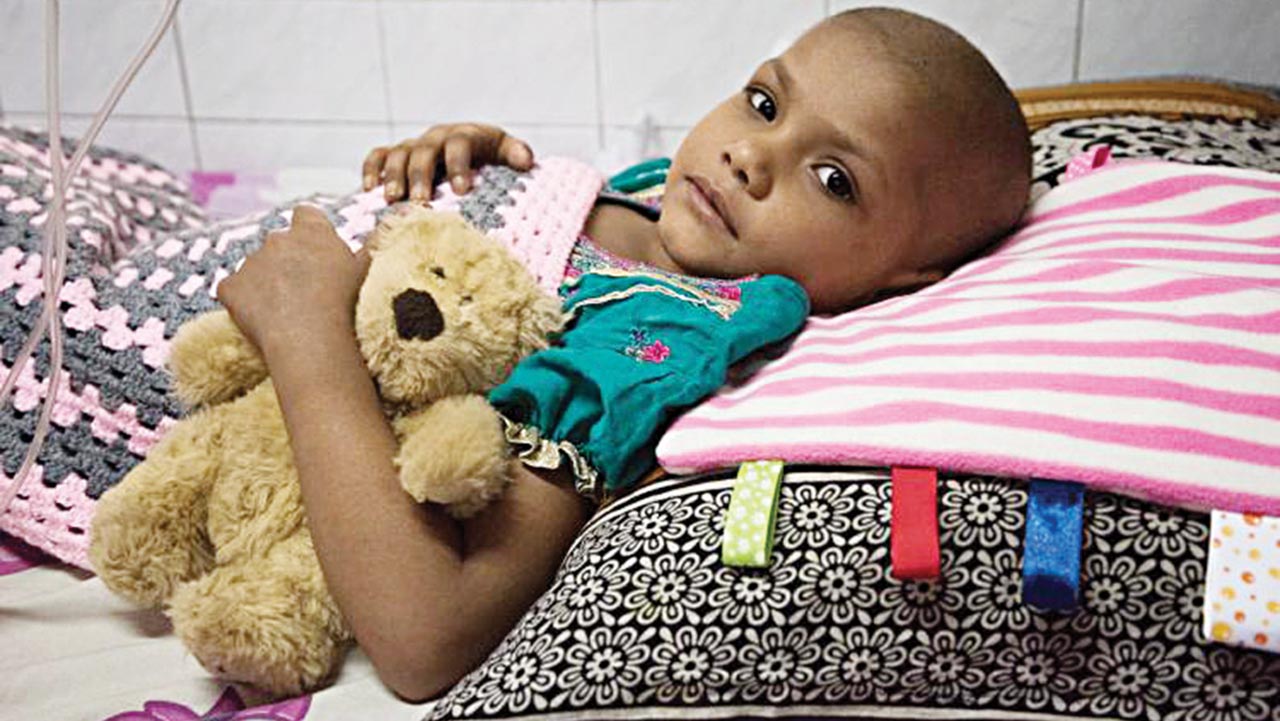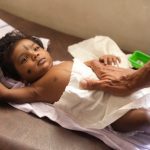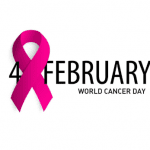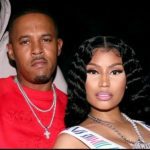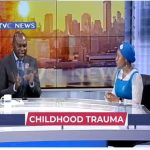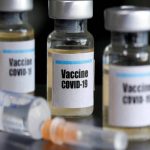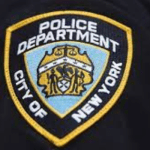According to World Health Organisation’s estimate, up to 30,000 children are diagnosed with cancer yearly; and 80 per cent of them live in Low and Middle-Income Countries (LMICs) like Nigeria. Globally, there are 160,000 new cases of cancer every year and 90,000 deaths recorded annually for children under the age of 15.
Just like adult cancer, childhood cancer is not one entity. There are many different types of cancer that can develop in a child. The same processes of cell growth, division, and replication occur in children. And just like adults, things can go wrong somewhere along these processes.
Many people don’t know that children develop cancers too. Children develop different types of cancer than adults but they often have the same types of treatments, that is chemotherapy, surgery and radiation therapy.
Most common cancer of children includes; Leukemia – cancer of the blood, brain and spinal cord tumors, Neuroblastoma – cancer arising in neural structure most common in the abdomen (belly area), Wilms tumor – cancer arising in kidney cells, Lymphoma (including both Hodgkin and non-Hodgkin) – cancer arising in lymph nodes, Rhabdomyosarcoma – cancer arising in cells with muscle origin, Retinoblastoma – cancer of the retina of the eye, Bone cancer (most common Osteosarcoma and Ewing sarcoma).
An Oncologist and the founder of a non-profit organisation, Dorcas Foundation, Dr. Adedayo Joseph, who has taken a lead role in raising fund for treatment of early detected childhood cancer explained that sadly till date the causes of childhood cancer are unknown but most childhood cancers are traced to genetic aberrations which nobody can prevent.
“There are many different types of cancer in children, most of which no specific cause has been identified. Some cancers have been linked to viral causes or exposure of the parent or child to harmful ionizing radiation, or certain chemicals like Benzene. Generally speaking, children’s cancers are mostly due to genetic aberrations which nobody can prevent, and are still being understood by scientist and researchers,” she said.
Reducing the burden of childhood cancer, Joseph admitted that “it’s a difficult task. Unlike adult cancers that are linked to diet and lifestyle choices, children’s cancers are not really preventable.”
As a mother, she lamented that the expensive treatment of cancer generally is an obstacle, consequently losing lives battling cancer. “Cancer treatment is very expensive. It costs an average of N2 million to take a child through diagnosis and testing, to treatment and rehabilitation. As at today, Dorcas Foundation has funded treatment for 10 children as you can imagine, many people cannot afford this,” she said.
She noted that the foundation is actively involved in funding direct care for children with cancer. But do not begin the treatment process unless they are sure of covering it till the end of treatment.
She also noted that The Dorcas Cancer Foundation has recently launched our Childhood Cancer Handbook Series with the release of the first book in the series: Cancer in Children.
The foundation intends to translate these books into the common colloquial and vernacular languages in Nigeria, as well as continue to release more books in the series to educate families, patients, and healthcare professionals about childhood cancers.
Prof. Remi Adekingbe, an Oncologist at the Lagos University Teaching Hospital (LUTH), has called for early detection and diagnosis.
Adekingbe urged for private and government partnerships to secure the lives of cancer patients, stating that treatment and drugs for cancer are very expensive.
“Cancer is not a respecter of anybody. When a mother notices anything unusual, she should report to the hospital immediately. Treatment and drugs for cancer are expensive. In Nigeria today, we only have about seven machines for cancer treatment when we should be having about 200. Patients cannot battle cancer on their own, they need assistance from private organisations and even the government,” he said.
According to WHO, all types of cancer arise from the transformation of normal cells into tumour cells in a multistage processthat generally progresses from a pre-cancerous lesion to a malignant tumour.
The health body says these changes are the result of the interaction between a person’s genetic factors and three categories of externalagents, including: physical carcinogens, such as ultraviolet and ionizing radiation; chemical carcinogens, such as asbestos, components of tobacco smoke, aflatoxin (a food contaminant), and arsenic (a drinking water contaminant); and biological carcinogens, such as infections from certain viruses, bacteria, or parasites.
WHO, through its cancer research agency, International Agency for Research on Cancer (IARC), maintains a classification of cancer-causing agents. “Ageing is another fundamental factor for the development of cancer. The incidence of cancer rises dramatically with age, most likely due to a build-up of risks for specific cancers that increase with age.
The health body believes risk factors for cancer includes tobacco use, alcohol use, unhealthy diet, and physical inactivity, which it described as major cancer risk factors worldwide; also representing four shared risk factors for other noncommunicable diseases. “Some chronic infections are risk factors for cancer and have major relevance in low- and middle-income countries,” it added.
“Cancer mortality can be reduced if cases are detected and treated early through early diagnosis. When identified early, cancer is more likely to respond to effective treatment and can result in greater probability of surviving, less morbidity, and less expensive treatment. Significant improvements can be made in the lives of cancer patients by detecting cancer early and avoiding delays in care,” the body says.
According to World Health Organisation’s estimate, up to 30,000 children are diagnosed with cancer yearly; and 80 per cent of them live in Low and Middle-Income Countries (LMICs) like Nigeria. Globally, there are 160,000 new cases of cancer every year and 90,000 deaths recorded annually for children under the age of 15.
Just like adult cancer, childhood cancer is not one entity. There are many different types of cancer that can develop in a child. The same processes of cell growth, division, and replication occur in children. And just like adults, things can go wrong somewhere along these processes.
Many people don’t know that children develop cancers too. Children develop different types of cancer than adults but they often have the same types of treatments, that is chemotherapy, surgery and radiation therapy.
Most common cancer of children includes; Leukemia – cancer of the blood, brain and spinal cord tumors, Neuroblastoma – cancer arising in neural structure most common in the abdomen (belly area), Wilms tumor – cancer arising in kidney cells, Lymphoma (including both Hodgkin and non-Hodgkin) – cancer arising in lymph nodes, Rhabdomyosarcoma – cancer arising in cells with muscle origin, Retinoblastoma – cancer of the retina of the eye, Bone cancer (most common Osteosarcoma and Ewing sarcoma).
An Oncologist and the founder of a non-profit organisation, Dorcas Foundation, Dr. Adedayo Joseph, who has taken a lead role in raising fund for treatment of early detected childhood cancer explained that sadly till date the causes of childhood cancer are unknown but most childhood cancers are traced to genetic aberrations which nobody can prevent.
“There are many different types of cancer in children, most of which no specific cause has been identified. Some cancers have been linked to viral causes or exposure of the parent or child to harmful ionizing radiation, or certain chemicals like Benzene. Generally speaking, children’s cancers are mostly due to genetic aberrations which nobody can prevent, and are still being understood by scientist and researchers,” she said.
Reducing the burden of childhood cancer, Joseph admitted that “it’s a difficult task. Unlike adult cancers that are linked to diet and lifestyle choices, children’s cancers are not really preventable.”
As a mother, she lamented that the expensive treatment of cancer generally is an obstacle, consequently losing lives battling cancer. “Cancer treatment is very expensive. It costs an average of N2 million to take a child through diagnosis and testing, to treatment and rehabilitation. As at today, Dorcas Foundation has funded treatment for 10 children as you can imagine, many people cannot afford this,” she said.
She noted that the foundation is actively involved in funding direct care for children with cancer. But do not begin the treatment process unless they are sure of covering it till the end of treatment.
She also noted that The Dorcas Cancer Foundation has recently launched our Childhood Cancer Handbook Series with the release of the first book in the series: Cancer in Children.
The foundation intends to translate these books into the common colloquial and vernacular languages in Nigeria, as well as continue to release more books in the series to educate families, patients, and healthcare professionals about childhood cancers.
Prof. Remi Adekingbe, an Oncologist at the Lagos University Teaching Hospital (LUTH), has called for early detection and diagnosis.
Adekingbe urged for private and government partnerships to secure the lives of cancer patients, stating that treatment and drugs for cancer are very expensive.
“Cancer is not a respecter of anybody. When a mother notices anything unusual, she should report to the hospital immediately. Treatment and drugs for cancer are expensive. In Nigeria today, we only have about seven machines for cancer treatment when we should be having about 200. Patients cannot battle cancer on their own, they need assistance from private organisations and even the government,” he said.
According to WHO, all types of cancer arise from the transformation of normal cells into tumour cells in a multistage processthat generally progresses from a pre-cancerous lesion to a malignant tumour.
The health body says these changes are the result of the interaction between a person’s genetic factors and three categories of externalagents, including: physical carcinogens, such as ultraviolet and ionizing radiation; chemical carcinogens, such as asbestos, components of tobacco smoke, aflatoxin (a food contaminant), and arsenic (a drinking water contaminant); and biological carcinogens, such as infections from certain viruses, bacteria, or parasites.
WHO, through its cancer research agency, International Agency for Research on Cancer (IARC), maintains a classification of cancer-causing agents. “Ageing is another fundamental factor for the development of cancer. The incidence of cancer rises dramatically with age, most likely due to a build-up of risks for specific cancers that increase with age.
The health body believes risk factors for cancer includes tobacco use, alcohol use, unhealthy diet, and physical inactivity, which it described as major cancer risk factors worldwide; also representing four shared risk factors for other noncommunicable diseases. “Some chronic infections are risk factors for cancer and have major relevance in low- and middle-income countries,” it added.
“Cancer mortality can be reduced if cases are detected and treated early through early diagnosis. When identified early, cancer is more likely to respond to effective treatment and can result in greater probability of surviving, less morbidity, and less expensive treatment. Significant improvements can be made in the lives of cancer patients by detecting cancer early and avoiding delays in care,” the body says.
According to World Health Organisation’s estimate, up to 30,000 children are diagnosed with cancer yearly; and 80 per cent of them live in Low and Middle-Income Countries (LMICs) like Nigeria. Globally, there are 160,000 new cases of cancer every year and 90,000 deaths recorded annually for children under the age of 15.
Just like adult cancer, childhood cancer is not one entity. There are many different types of cancer that can develop in a child. The same processes of cell growth, division, and replication occur in children. And just like adults, things can go wrong somewhere along these processes.
Many people don’t know that children develop cancers too. Children develop different types of cancer than adults but they often have the same types of treatments, that is chemotherapy, surgery and radiation therapy.
Most common cancer of children includes; Leukemia – cancer of the blood, brain and spinal cord tumors, Neuroblastoma – cancer arising in neural structure most common in the abdomen (belly area), Wilms tumor – cancer arising in kidney cells, Lymphoma (including both Hodgkin and non-Hodgkin) – cancer arising in lymph nodes, Rhabdomyosarcoma – cancer arising in cells with muscle origin, Retinoblastoma – cancer of the retina of the eye, Bone cancer (most common Osteosarcoma and Ewing sarcoma).
An Oncologist and the founder of a non-profit organisation, Dorcas Foundation, Dr. Adedayo Joseph, who has taken a lead role in raising fund for treatment of early detected childhood cancer explained that sadly till date the causes of childhood cancer are unknown but most childhood cancers are traced to genetic aberrations which nobody can prevent.
“There are many different types of cancer in children, most of which no specific cause has been identified. Some cancers have been linked to viral causes or exposure of the parent or child to harmful ionizing radiation, or certain chemicals like Benzene. Generally speaking, children’s cancers are mostly due to genetic aberrations which nobody can prevent, and are still being understood by scientist and researchers,” she said.
Reducing the burden of childhood cancer, Joseph admitted that “it’s a difficult task. Unlike adult cancers that are linked to diet and lifestyle choices, children’s cancers are not really preventable.”
As a mother, she lamented that the expensive treatment of cancer generally is an obstacle, consequently losing lives battling cancer. “Cancer treatment is very expensive. It costs an average of N2 million to take a child through diagnosis and testing, to treatment and rehabilitation. As at today, Dorcas Foundation has funded treatment for 10 children as you can imagine, many people cannot afford this,” she said.
She noted that the foundation is actively involved in funding direct care for children with cancer. But do not begin the treatment process unless they are sure of covering it till the end of treatment.
She also noted that The Dorcas Cancer Foundation has recently launched our Childhood Cancer Handbook Series with the release of the first book in the series: Cancer in Children.
The foundation intends to translate these books into the common colloquial and vernacular languages in Nigeria, as well as continue to release more books in the series to educate families, patients, and healthcare professionals about childhood cancers.
Prof. Remi Adekingbe, an Oncologist at the Lagos University Teaching Hospital (LUTH), has called for early detection and diagnosis.
Adekingbe urged for private and government partnerships to secure the lives of cancer patients, stating that treatment and drugs for cancer are very expensive.
“Cancer is not a respecter of anybody. When a mother notices anything unusual, she should report to the hospital immediately. Treatment and drugs for cancer are expensive. In Nigeria today, we only have about seven machines for cancer treatment when we should be having about 200. Patients cannot battle cancer on their own, they need assistance from private organisations and even the government,” he said.
According to WHO, all types of cancer arise from the transformation of normal cells into tumour cells in a multistage processthat generally progresses from a pre-cancerous lesion to a malignant tumour.
The health body says these changes are the result of the interaction between a person’s genetic factors and three categories of externalagents, including: physical carcinogens, such as ultraviolet and ionizing radiation; chemical carcinogens, such as asbestos, components of tobacco smoke, aflatoxin (a food contaminant), and arsenic (a drinking water contaminant); and biological carcinogens, such as infections from certain viruses, bacteria, or parasites.
WHO, through its cancer research agency, International Agency for Research on Cancer (IARC), maintains a classification of cancer-causing agents. “Ageing is another fundamental factor for the development of cancer. The incidence of cancer rises dramatically with age, most likely due to a build-up of risks for specific cancers that increase with age.
The health body believes risk factors for cancer includes tobacco use, alcohol use, unhealthy diet, and physical inactivity, which it described as major cancer risk factors worldwide; also representing four shared risk factors for other noncommunicable diseases. “Some chronic infections are risk factors for cancer and have major relevance in low- and middle-income countries,” it added.
“Cancer mortality can be reduced if cases are detected and treated early through early diagnosis. When identified early, cancer is more likely to respond to effective treatment and can result in greater probability of surviving, less morbidity, and less expensive treatment. Significant improvements can be made in the lives of cancer patients by detecting cancer early and avoiding delays in care,” the body says.
According to World Health Organisation’s estimate, up to 30,000 children are diagnosed with cancer yearly; and 80 per cent of them live in Low and Middle-Income Countries (LMICs) like Nigeria. Globally, there are 160,000 new cases of cancer every year and 90,000 deaths recorded annually for children under the age of 15.
Just like adult cancer, childhood cancer is not one entity. There are many different types of cancer that can develop in a child. The same processes of cell growth, division, and replication occur in children. And just like adults, things can go wrong somewhere along these processes.
Many people don’t know that children develop cancers too. Children develop different types of cancer than adults but they often have the same types of treatments, that is chemotherapy, surgery and radiation therapy.
Most common cancer of children includes; Leukemia – cancer of the blood, brain and spinal cord tumors, Neuroblastoma – cancer arising in neural structure most common in the abdomen (belly area), Wilms tumor – cancer arising in kidney cells, Lymphoma (including both Hodgkin and non-Hodgkin) – cancer arising in lymph nodes, Rhabdomyosarcoma – cancer arising in cells with muscle origin, Retinoblastoma – cancer of the retina of the eye, Bone cancer (most common Osteosarcoma and Ewing sarcoma).
An Oncologist and the founder of a non-profit organisation, Dorcas Foundation, Dr. Adedayo Joseph, who has taken a lead role in raising fund for treatment of early detected childhood cancer explained that sadly till date the causes of childhood cancer are unknown but most childhood cancers are traced to genetic aberrations which nobody can prevent.
“There are many different types of cancer in children, most of which no specific cause has been identified. Some cancers have been linked to viral causes or exposure of the parent or child to harmful ionizing radiation, or certain chemicals like Benzene. Generally speaking, children’s cancers are mostly due to genetic aberrations which nobody can prevent, and are still being understood by scientist and researchers,” she said.
Reducing the burden of childhood cancer, Joseph admitted that “it’s a difficult task. Unlike adult cancers that are linked to diet and lifestyle choices, children’s cancers are not really preventable.”
As a mother, she lamented that the expensive treatment of cancer generally is an obstacle, consequently losing lives battling cancer. “Cancer treatment is very expensive. It costs an average of N2 million to take a child through diagnosis and testing, to treatment and rehabilitation. As at today, Dorcas Foundation has funded treatment for 10 children as you can imagine, many people cannot afford this,” she said.
She noted that the foundation is actively involved in funding direct care for children with cancer. But do not begin the treatment process unless they are sure of covering it till the end of treatment.
She also noted that The Dorcas Cancer Foundation has recently launched our Childhood Cancer Handbook Series with the release of the first book in the series: Cancer in Children.
The foundation intends to translate these books into the common colloquial and vernacular languages in Nigeria, as well as continue to release more books in the series to educate families, patients, and healthcare professionals about childhood cancers.
Prof. Remi Adekingbe, an Oncologist at the Lagos University Teaching Hospital (LUTH), has called for early detection and diagnosis.
Adekingbe urged for private and government partnerships to secure the lives of cancer patients, stating that treatment and drugs for cancer are very expensive.
“Cancer is not a respecter of anybody. When a mother notices anything unusual, she should report to the hospital immediately. Treatment and drugs for cancer are expensive. In Nigeria today, we only have about seven machines for cancer treatment when we should be having about 200. Patients cannot battle cancer on their own, they need assistance from private organisations and even the government,” he said.
According to WHO, all types of cancer arise from the transformation of normal cells into tumour cells in a multistage processthat generally progresses from a pre-cancerous lesion to a malignant tumour.
The health body says these changes are the result of the interaction between a person’s genetic factors and three categories of externalagents, including: physical carcinogens, such as ultraviolet and ionizing radiation; chemical carcinogens, such as asbestos, components of tobacco smoke, aflatoxin (a food contaminant), and arsenic (a drinking water contaminant); and biological carcinogens, such as infections from certain viruses, bacteria, or parasites.
WHO, through its cancer research agency, International Agency for Research on Cancer (IARC), maintains a classification of cancer-causing agents. “Ageing is another fundamental factor for the development of cancer. The incidence of cancer rises dramatically with age, most likely due to a build-up of risks for specific cancers that increase with age.
The health body believes risk factors for cancer includes tobacco use, alcohol use, unhealthy diet, and physical inactivity, which it described as major cancer risk factors worldwide; also representing four shared risk factors for other noncommunicable diseases. “Some chronic infections are risk factors for cancer and have major relevance in low- and middle-income countries,” it added.
“Cancer mortality can be reduced if cases are detected and treated early through early diagnosis. When identified early, cancer is more likely to respond to effective treatment and can result in greater probability of surviving, less morbidity, and less expensive treatment. Significant improvements can be made in the lives of cancer patients by detecting cancer early and avoiding delays in care,” the body says.
According to World Health Organisation’s estimate, up to 30,000 children are diagnosed with cancer yearly; and 80 per cent of them live in Low and Middle-Income Countries (LMICs) like Nigeria. Globally, there are 160,000 new cases of cancer every year and 90,000 deaths recorded annually for children under the age of 15.
Just like adult cancer, childhood cancer is not one entity. There are many different types of cancer that can develop in a child. The same processes of cell growth, division, and replication occur in children. And just like adults, things can go wrong somewhere along these processes.
Many people don’t know that children develop cancers too. Children develop different types of cancer than adults but they often have the same types of treatments, that is chemotherapy, surgery and radiation therapy.
Most common cancer of children includes; Leukemia – cancer of the blood, brain and spinal cord tumors, Neuroblastoma – cancer arising in neural structure most common in the abdomen (belly area), Wilms tumor – cancer arising in kidney cells, Lymphoma (including both Hodgkin and non-Hodgkin) – cancer arising in lymph nodes, Rhabdomyosarcoma – cancer arising in cells with muscle origin, Retinoblastoma – cancer of the retina of the eye, Bone cancer (most common Osteosarcoma and Ewing sarcoma).
An Oncologist and the founder of a non-profit organisation, Dorcas Foundation, Dr. Adedayo Joseph, who has taken a lead role in raising fund for treatment of early detected childhood cancer explained that sadly till date the causes of childhood cancer are unknown but most childhood cancers are traced to genetic aberrations which nobody can prevent.
“There are many different types of cancer in children, most of which no specific cause has been identified. Some cancers have been linked to viral causes or exposure of the parent or child to harmful ionizing radiation, or certain chemicals like Benzene. Generally speaking, children’s cancers are mostly due to genetic aberrations which nobody can prevent, and are still being understood by scientist and researchers,” she said.
Reducing the burden of childhood cancer, Joseph admitted that “it’s a difficult task. Unlike adult cancers that are linked to diet and lifestyle choices, children’s cancers are not really preventable.”
As a mother, she lamented that the expensive treatment of cancer generally is an obstacle, consequently losing lives battling cancer. “Cancer treatment is very expensive. It costs an average of N2 million to take a child through diagnosis and testing, to treatment and rehabilitation. As at today, Dorcas Foundation has funded treatment for 10 children as you can imagine, many people cannot afford this,” she said.
She noted that the foundation is actively involved in funding direct care for children with cancer. But do not begin the treatment process unless they are sure of covering it till the end of treatment.
She also noted that The Dorcas Cancer Foundation has recently launched our Childhood Cancer Handbook Series with the release of the first book in the series: Cancer in Children.
The foundation intends to translate these books into the common colloquial and vernacular languages in Nigeria, as well as continue to release more books in the series to educate families, patients, and healthcare professionals about childhood cancers.
Prof. Remi Adekingbe, an Oncologist at the Lagos University Teaching Hospital (LUTH), has called for early detection and diagnosis.
Adekingbe urged for private and government partnerships to secure the lives of cancer patients, stating that treatment and drugs for cancer are very expensive.
“Cancer is not a respecter of anybody. When a mother notices anything unusual, she should report to the hospital immediately. Treatment and drugs for cancer are expensive. In Nigeria today, we only have about seven machines for cancer treatment when we should be having about 200. Patients cannot battle cancer on their own, they need assistance from private organisations and even the government,” he said.
According to WHO, all types of cancer arise from the transformation of normal cells into tumour cells in a multistage processthat generally progresses from a pre-cancerous lesion to a malignant tumour.
The health body says these changes are the result of the interaction between a person’s genetic factors and three categories of externalagents, including: physical carcinogens, such as ultraviolet and ionizing radiation; chemical carcinogens, such as asbestos, components of tobacco smoke, aflatoxin (a food contaminant), and arsenic (a drinking water contaminant); and biological carcinogens, such as infections from certain viruses, bacteria, or parasites.
WHO, through its cancer research agency, International Agency for Research on Cancer (IARC), maintains a classification of cancer-causing agents. “Ageing is another fundamental factor for the development of cancer. The incidence of cancer rises dramatically with age, most likely due to a build-up of risks for specific cancers that increase with age.
The health body believes risk factors for cancer includes tobacco use, alcohol use, unhealthy diet, and physical inactivity, which it described as major cancer risk factors worldwide; also representing four shared risk factors for other noncommunicable diseases. “Some chronic infections are risk factors for cancer and have major relevance in low- and middle-income countries,” it added.
“Cancer mortality can be reduced if cases are detected and treated early through early diagnosis. When identified early, cancer is more likely to respond to effective treatment and can result in greater probability of surviving, less morbidity, and less expensive treatment. Significant improvements can be made in the lives of cancer patients by detecting cancer early and avoiding delays in care,” the body says.
According to World Health Organisation’s estimate, up to 30,000 children are diagnosed with cancer yearly; and 80 per cent of them live in Low and Middle-Income Countries (LMICs) like Nigeria. Globally, there are 160,000 new cases of cancer every year and 90,000 deaths recorded annually for children under the age of 15.
Just like adult cancer, childhood cancer is not one entity. There are many different types of cancer that can develop in a child. The same processes of cell growth, division, and replication occur in children. And just like adults, things can go wrong somewhere along these processes.
Many people don’t know that children develop cancers too. Children develop different types of cancer than adults but they often have the same types of treatments, that is chemotherapy, surgery and radiation therapy.
Most common cancer of children includes; Leukemia – cancer of the blood, brain and spinal cord tumors, Neuroblastoma – cancer arising in neural structure most common in the abdomen (belly area), Wilms tumor – cancer arising in kidney cells, Lymphoma (including both Hodgkin and non-Hodgkin) – cancer arising in lymph nodes, Rhabdomyosarcoma – cancer arising in cells with muscle origin, Retinoblastoma – cancer of the retina of the eye, Bone cancer (most common Osteosarcoma and Ewing sarcoma).
An Oncologist and the founder of a non-profit organisation, Dorcas Foundation, Dr. Adedayo Joseph, who has taken a lead role in raising fund for treatment of early detected childhood cancer explained that sadly till date the causes of childhood cancer are unknown but most childhood cancers are traced to genetic aberrations which nobody can prevent.
“There are many different types of cancer in children, most of which no specific cause has been identified. Some cancers have been linked to viral causes or exposure of the parent or child to harmful ionizing radiation, or certain chemicals like Benzene. Generally speaking, children’s cancers are mostly due to genetic aberrations which nobody can prevent, and are still being understood by scientist and researchers,” she said.
Reducing the burden of childhood cancer, Joseph admitted that “it’s a difficult task. Unlike adult cancers that are linked to diet and lifestyle choices, children’s cancers are not really preventable.”
As a mother, she lamented that the expensive treatment of cancer generally is an obstacle, consequently losing lives battling cancer. “Cancer treatment is very expensive. It costs an average of N2 million to take a child through diagnosis and testing, to treatment and rehabilitation. As at today, Dorcas Foundation has funded treatment for 10 children as you can imagine, many people cannot afford this,” she said.
She noted that the foundation is actively involved in funding direct care for children with cancer. But do not begin the treatment process unless they are sure of covering it till the end of treatment.
She also noted that The Dorcas Cancer Foundation has recently launched our Childhood Cancer Handbook Series with the release of the first book in the series: Cancer in Children.
The foundation intends to translate these books into the common colloquial and vernacular languages in Nigeria, as well as continue to release more books in the series to educate families, patients, and healthcare professionals about childhood cancers.
Prof. Remi Adekingbe, an Oncologist at the Lagos University Teaching Hospital (LUTH), has called for early detection and diagnosis.
Adekingbe urged for private and government partnerships to secure the lives of cancer patients, stating that treatment and drugs for cancer are very expensive.
“Cancer is not a respecter of anybody. When a mother notices anything unusual, she should report to the hospital immediately. Treatment and drugs for cancer are expensive. In Nigeria today, we only have about seven machines for cancer treatment when we should be having about 200. Patients cannot battle cancer on their own, they need assistance from private organisations and even the government,” he said.
According to WHO, all types of cancer arise from the transformation of normal cells into tumour cells in a multistage processthat generally progresses from a pre-cancerous lesion to a malignant tumour.
The health body says these changes are the result of the interaction between a person’s genetic factors and three categories of externalagents, including: physical carcinogens, such as ultraviolet and ionizing radiation; chemical carcinogens, such as asbestos, components of tobacco smoke, aflatoxin (a food contaminant), and arsenic (a drinking water contaminant); and biological carcinogens, such as infections from certain viruses, bacteria, or parasites.
WHO, through its cancer research agency, International Agency for Research on Cancer (IARC), maintains a classification of cancer-causing agents. “Ageing is another fundamental factor for the development of cancer. The incidence of cancer rises dramatically with age, most likely due to a build-up of risks for specific cancers that increase with age.
The health body believes risk factors for cancer includes tobacco use, alcohol use, unhealthy diet, and physical inactivity, which it described as major cancer risk factors worldwide; also representing four shared risk factors for other noncommunicable diseases. “Some chronic infections are risk factors for cancer and have major relevance in low- and middle-income countries,” it added.
“Cancer mortality can be reduced if cases are detected and treated early through early diagnosis. When identified early, cancer is more likely to respond to effective treatment and can result in greater probability of surviving, less morbidity, and less expensive treatment. Significant improvements can be made in the lives of cancer patients by detecting cancer early and avoiding delays in care,” the body says.
According to World Health Organisation’s estimate, up to 30,000 children are diagnosed with cancer yearly; and 80 per cent of them live in Low and Middle-Income Countries (LMICs) like Nigeria. Globally, there are 160,000 new cases of cancer every year and 90,000 deaths recorded annually for children under the age of 15.
Just like adult cancer, childhood cancer is not one entity. There are many different types of cancer that can develop in a child. The same processes of cell growth, division, and replication occur in children. And just like adults, things can go wrong somewhere along these processes.
Many people don’t know that children develop cancers too. Children develop different types of cancer than adults but they often have the same types of treatments, that is chemotherapy, surgery and radiation therapy.
Most common cancer of children includes; Leukemia – cancer of the blood, brain and spinal cord tumors, Neuroblastoma – cancer arising in neural structure most common in the abdomen (belly area), Wilms tumor – cancer arising in kidney cells, Lymphoma (including both Hodgkin and non-Hodgkin) – cancer arising in lymph nodes, Rhabdomyosarcoma – cancer arising in cells with muscle origin, Retinoblastoma – cancer of the retina of the eye, Bone cancer (most common Osteosarcoma and Ewing sarcoma).
An Oncologist and the founder of a non-profit organisation, Dorcas Foundation, Dr. Adedayo Joseph, who has taken a lead role in raising fund for treatment of early detected childhood cancer explained that sadly till date the causes of childhood cancer are unknown but most childhood cancers are traced to genetic aberrations which nobody can prevent.
“There are many different types of cancer in children, most of which no specific cause has been identified. Some cancers have been linked to viral causes or exposure of the parent or child to harmful ionizing radiation, or certain chemicals like Benzene. Generally speaking, children’s cancers are mostly due to genetic aberrations which nobody can prevent, and are still being understood by scientist and researchers,” she said.
Reducing the burden of childhood cancer, Joseph admitted that “it’s a difficult task. Unlike adult cancers that are linked to diet and lifestyle choices, children’s cancers are not really preventable.”
As a mother, she lamented that the expensive treatment of cancer generally is an obstacle, consequently losing lives battling cancer. “Cancer treatment is very expensive. It costs an average of N2 million to take a child through diagnosis and testing, to treatment and rehabilitation. As at today, Dorcas Foundation has funded treatment for 10 children as you can imagine, many people cannot afford this,” she said.
She noted that the foundation is actively involved in funding direct care for children with cancer. But do not begin the treatment process unless they are sure of covering it till the end of treatment.
She also noted that The Dorcas Cancer Foundation has recently launched our Childhood Cancer Handbook Series with the release of the first book in the series: Cancer in Children.
The foundation intends to translate these books into the common colloquial and vernacular languages in Nigeria, as well as continue to release more books in the series to educate families, patients, and healthcare professionals about childhood cancers.
Prof. Remi Adekingbe, an Oncologist at the Lagos University Teaching Hospital (LUTH), has called for early detection and diagnosis.
Adekingbe urged for private and government partnerships to secure the lives of cancer patients, stating that treatment and drugs for cancer are very expensive.
“Cancer is not a respecter of anybody. When a mother notices anything unusual, she should report to the hospital immediately. Treatment and drugs for cancer are expensive. In Nigeria today, we only have about seven machines for cancer treatment when we should be having about 200. Patients cannot battle cancer on their own, they need assistance from private organisations and even the government,” he said.
According to WHO, all types of cancer arise from the transformation of normal cells into tumour cells in a multistage processthat generally progresses from a pre-cancerous lesion to a malignant tumour.
The health body says these changes are the result of the interaction between a person’s genetic factors and three categories of externalagents, including: physical carcinogens, such as ultraviolet and ionizing radiation; chemical carcinogens, such as asbestos, components of tobacco smoke, aflatoxin (a food contaminant), and arsenic (a drinking water contaminant); and biological carcinogens, such as infections from certain viruses, bacteria, or parasites.
WHO, through its cancer research agency, International Agency for Research on Cancer (IARC), maintains a classification of cancer-causing agents. “Ageing is another fundamental factor for the development of cancer. The incidence of cancer rises dramatically with age, most likely due to a build-up of risks for specific cancers that increase with age.
The health body believes risk factors for cancer includes tobacco use, alcohol use, unhealthy diet, and physical inactivity, which it described as major cancer risk factors worldwide; also representing four shared risk factors for other noncommunicable diseases. “Some chronic infections are risk factors for cancer and have major relevance in low- and middle-income countries,” it added.
“Cancer mortality can be reduced if cases are detected and treated early through early diagnosis. When identified early, cancer is more likely to respond to effective treatment and can result in greater probability of surviving, less morbidity, and less expensive treatment. Significant improvements can be made in the lives of cancer patients by detecting cancer early and avoiding delays in care,” the body says.
According to World Health Organisation’s estimate, up to 30,000 children are diagnosed with cancer yearly; and 80 per cent of them live in Low and Middle-Income Countries (LMICs) like Nigeria. Globally, there are 160,000 new cases of cancer every year and 90,000 deaths recorded annually for children under the age of 15.
Just like adult cancer, childhood cancer is not one entity. There are many different types of cancer that can develop in a child. The same processes of cell growth, division, and replication occur in children. And just like adults, things can go wrong somewhere along these processes.
Many people don’t know that children develop cancers too. Children develop different types of cancer than adults but they often have the same types of treatments, that is chemotherapy, surgery and radiation therapy.
Most common cancer of children includes; Leukemia – cancer of the blood, brain and spinal cord tumors, Neuroblastoma – cancer arising in neural structure most common in the abdomen (belly area), Wilms tumor – cancer arising in kidney cells, Lymphoma (including both Hodgkin and non-Hodgkin) – cancer arising in lymph nodes, Rhabdomyosarcoma – cancer arising in cells with muscle origin, Retinoblastoma – cancer of the retina of the eye, Bone cancer (most common Osteosarcoma and Ewing sarcoma).
An Oncologist and the founder of a non-profit organisation, Dorcas Foundation, Dr. Adedayo Joseph, who has taken a lead role in raising fund for treatment of early detected childhood cancer explained that sadly till date the causes of childhood cancer are unknown but most childhood cancers are traced to genetic aberrations which nobody can prevent.
“There are many different types of cancer in children, most of which no specific cause has been identified. Some cancers have been linked to viral causes or exposure of the parent or child to harmful ionizing radiation, or certain chemicals like Benzene. Generally speaking, children’s cancers are mostly due to genetic aberrations which nobody can prevent, and are still being understood by scientist and researchers,” she said.
Reducing the burden of childhood cancer, Joseph admitted that “it’s a difficult task. Unlike adult cancers that are linked to diet and lifestyle choices, children’s cancers are not really preventable.”
As a mother, she lamented that the expensive treatment of cancer generally is an obstacle, consequently losing lives battling cancer. “Cancer treatment is very expensive. It costs an average of N2 million to take a child through diagnosis and testing, to treatment and rehabilitation. As at today, Dorcas Foundation has funded treatment for 10 children as you can imagine, many people cannot afford this,” she said.
She noted that the foundation is actively involved in funding direct care for children with cancer. But do not begin the treatment process unless they are sure of covering it till the end of treatment.
She also noted that The Dorcas Cancer Foundation has recently launched our Childhood Cancer Handbook Series with the release of the first book in the series: Cancer in Children.
The foundation intends to translate these books into the common colloquial and vernacular languages in Nigeria, as well as continue to release more books in the series to educate families, patients, and healthcare professionals about childhood cancers.
Prof. Remi Adekingbe, an Oncologist at the Lagos University Teaching Hospital (LUTH), has called for early detection and diagnosis.
Adekingbe urged for private and government partnerships to secure the lives of cancer patients, stating that treatment and drugs for cancer are very expensive.
“Cancer is not a respecter of anybody. When a mother notices anything unusual, she should report to the hospital immediately. Treatment and drugs for cancer are expensive. In Nigeria today, we only have about seven machines for cancer treatment when we should be having about 200. Patients cannot battle cancer on their own, they need assistance from private organisations and even the government,” he said.
According to WHO, all types of cancer arise from the transformation of normal cells into tumour cells in a multistage processthat generally progresses from a pre-cancerous lesion to a malignant tumour.
The health body says these changes are the result of the interaction between a person’s genetic factors and three categories of externalagents, including: physical carcinogens, such as ultraviolet and ionizing radiation; chemical carcinogens, such as asbestos, components of tobacco smoke, aflatoxin (a food contaminant), and arsenic (a drinking water contaminant); and biological carcinogens, such as infections from certain viruses, bacteria, or parasites.
WHO, through its cancer research agency, International Agency for Research on Cancer (IARC), maintains a classification of cancer-causing agents. “Ageing is another fundamental factor for the development of cancer. The incidence of cancer rises dramatically with age, most likely due to a build-up of risks for specific cancers that increase with age.
The health body believes risk factors for cancer includes tobacco use, alcohol use, unhealthy diet, and physical inactivity, which it described as major cancer risk factors worldwide; also representing four shared risk factors for other noncommunicable diseases. “Some chronic infections are risk factors for cancer and have major relevance in low- and middle-income countries,” it added.
“Cancer mortality can be reduced if cases are detected and treated early through early diagnosis. When identified early, cancer is more likely to respond to effective treatment and can result in greater probability of surviving, less morbidity, and less expensive treatment. Significant improvements can be made in the lives of cancer patients by detecting cancer early and avoiding delays in care,” the body says.

